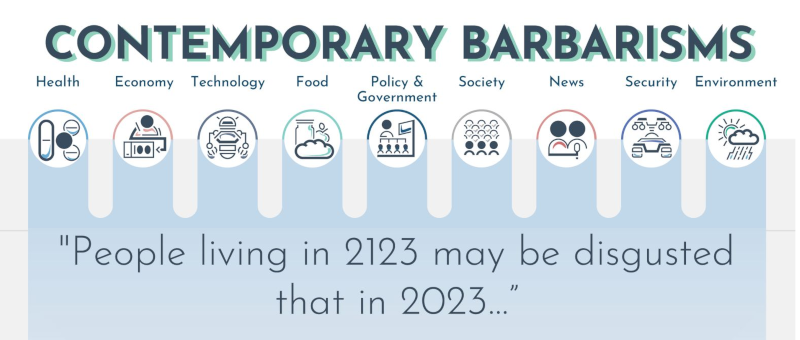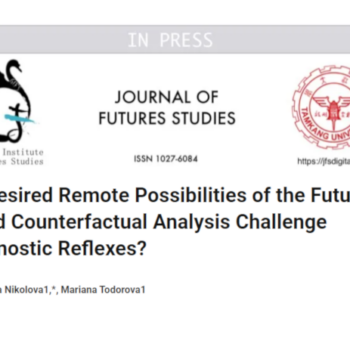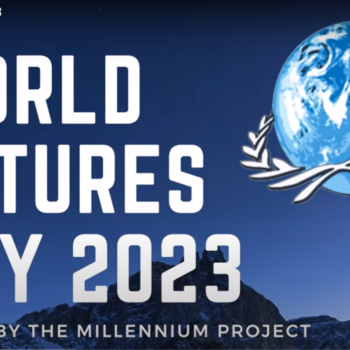
How will we disgust our descendants? – Report by the Poland Node
- Posted by Mara Di Berardo
- On 2 March 2023
- 0 Comments
Looking at the present through the eyes of a person from the future is quite challenging. To make such a perspective more tangible, Polish Society for Futures Studies and 4CF The Futures Literacy Company have embarked on a joint initiative to explore what in our contemporary lives might arouse the revulsion and disgust of posterity.
According to a survey that the Polish Society for Futures Studies together with 4CF The Futures Literacy Company, Poland Node of the Millennium Project, conducted among 60 global futurists, it will be unthinkable in the year 2123 that nature had no legal rights, people ate meat from brutally slaughtered animals or had to work to earn a living in our times. Our descendants might deem it controversial that there were nation states and borders or that the clean energy challenge was still unsolved and actions meant to stop and reverse climate change were inadequate a hundred years earlier.
„It would be short-sighted to assume that we, as humanity, have reached such a level of maturity that our descendants will not find some aspects of our – apparently civilised – everyday life repulsive and sad.. Perhaps, if we look to the future, we can initiate or accelerate change for the better and build more mature and just societies. So we asked 60 futurists from around the world a question: “How will we disgust our descendants? Many of the ideas submitted are already present in public discourse and confirm areas where the world needs to change. However, we were particularly interested in “eye-opening, revelatory ideas that humanity is largely not yet thinking about.” – says Norbert Kołos, Chair of our Poland Node.
Many of the barbarities identified by the futurists seem obvious and are as old as humanity itself, despite its continued progress: wars, violence, inequality, hunger and poverty. Others are already present in public discourse around the world. This is particularly true of human rights issues, threats to democracy or environmental and climate change. This is actually good news: these problems are widespread and no longer too surprising.
“Given that awareness of our imperfections is so high, the question is whether we are doing enough to bring about positive change in these areas. Taking action now is a chance to join the ranks of the enlightened, who are ahead of their times, but more importantly: the sooner we, humans, realise our contemporary barbarisms, the sooner we can move towards a better, more mature humanity. ” – Norbert Kolos, president of 4CF The Futures Literacy Company, adds.
Authors of the study were focusing on the least common, most surprising and ‘eye-opening’ phenomena and problems. Therefore, the 434 futurists’ responses to the question “How will we disgust our descendants?” were evaluated by fifty experts representing sixteen nationalities from the public sector, NGOs, higher education institutions and private companies.
Responses that proved to be a real revelation for many respondents include phenomena that are only just taking shape and, from a future perspective, may involve a variety of challenges, such as the nature lacking legal rights or lacking recognition for sophisticated non-human intelligence, sentience and its needs. Among the most ‘eye-opening’ responses were also issues related to the future of human labour, the use of modern technology and the threats posed by the development of artificial intelligence and bioscience or discoveries aimed at increasing human longevity.
The study’s findings – 93 modern barbarisms – provide an interesting, though obviously not exhaustive, compilation of issues that humanity needs to address immediately, or at the very least make them the subject of a collective reflection. It also highlights the importance of social change, which can drive the realisation of desirable futures in all areas of our existence.



